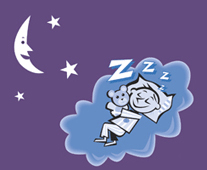Insomnia
When people have trouble sleeping, they may believe that they are suffering from insomnia. While insomnia is a common condition, the only way to know for sure whether you suffer from it or have simply had a bad night’s sleep is to undergo a sleep study.
Review these symptoms to help you determine if you are suffering from true insomnia (Garden Park Medical).
Trouble Falling Asleep
Lying awake at night, tossing and turning, and staring at the alarm clock are all symptoms of true insomnia. It may take you more than an hour to fall asleep, and you may feel restless and frustrated during that time, especially if you are physically tired.
You may struggle to get comfortable, or find that you can’t seem to shut your brain off, despite your tiredness.
Waking Up At Night
If you wake up multiple times during the night, you may be suffering from insomnia. You may wake up every hour, or you may wake up too early and be unable to go back to sleep.
Frequent trips to the bathroom because you’ve awaken may also be a symptom.
Feeling Tired Despite Rest
Some people wake up in the morning feeling as tired as they did when they went to bed. Being tired, groggy, grumpy, or cranky during the day are symptoms of insomnia, not just a poor night’s sleep.
You may even see a decline in your work performance, or you may be unable to accomplish the tasks that you need to for a successful day.
Poor Quality Sleep
When you sleep but don’t rest, your body and mind don’t rejuvenate as well as they should. You may be getting the recommended 8 hours of sleep—or maybe even more—but you still don’t feel refreshed and renewed. Poor quality sleep of any duration is a sign of insomnia.
Causes of Insomnia
Insomnia can be an incredibly frustrating disorder for those who suffer from it. The inability to sleep interferes with not only your ability to function normally throughout the day, but also with your overall health.
Insomnia occurs in a variety of types and forms, and each may have differing causes. Some of the most common causes of insomnia include:
- Stress has a way of wreaking havoc on your life, and that includes your sleep schedule. Not all types of stress have to be bad, however.
Anticipation of an upcoming event, such as your wedding or birth of a baby, for example, can keep you up at night for a few weeks to several months.
Other types of stress, such as pressure at work, marital trouble, or the loss of a loved one, are more negative and may produce more severe insomnia if not dealt with properly.
- Depression may be an emotional or psychological disorder, but its effects can influence your health and sleeping habits. In fact, insomnia is one of the major symptoms of depression.
If you think that depression may be the root of your insomnia, you should consider visiting a sleep center to discover the best course of treatment.
- Unfortunately, some of the medications that are intended to help us often come with some unwanted side effects.
If you have recently developed trouble sleeping after beginning a new medication, you may want to speak with your prescribing physician about alternative drugs or additional medications that can alleviate this side effect.
- Physical pain can certainly keep you up at night, as can emotional turmoil. In these cases, determining the root of the discomfort and initiating appropriate treatment can be the key to eliminating insomnia.
Insomnia Resources
In some cases, the cause of insomnia is idiopathic or unknown. The best way to determine what’s causing your sleeping trouble is to schedule a sleep study at an accredited sleep disorder facility like Zeeba Sleep Center.
We will be happy to help you reclaim your nights and get the sleep you need. Call (702) 242-1562 today to learn more about our sleep center.
Zeeba Sleep Ceneter is accredited by the American Academy of Sleep Medicine and has board-certified sleep physicians providing comprehensive sleep diagnostic and treatment services.
American Academy of Sleep Medicine
3425 Cliff Shadows Pkwy, Las Vegas, NV 89129
Call Us Today (702) 242-1562
Copyright © 2025 Zeeba Sleep Center All rights reserved.
